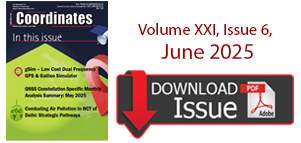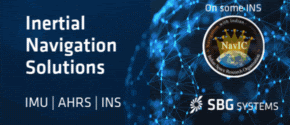| Galileo Update | |
Galileo Update
|
||||||||||
GIOVE-A transmits first Galileo signals
The GIOVE-A satellite is in good health and started transmitting the
fi rst Galileo signals from medium earth orbit on 12 January.
GIOVE-A was placed in orbit (altitude 23,260 km) by a Soyuz-Fregat rocket
operated by Starsem on 28 December last from the Baikonur cosmodrome.
The prime contractor, Surrey Satellite Technology Limited, then successfully
deployed the 7-metre solar array panels, commissioned the satellite
platform and prepared the payload for tests from its Mission Control Centre.
These activities on GIOVE-A drew on the joint efforts of ground stations
deployed at RAL (UK), Bangalore (India) and Kuala Lumpur (Malaysia)
for uploading of the on board computer software, deployment of
the two solar panels and placing of the satellite in sun-acquisition mode.
All the platform systems underwent functional checks and the satellite
was then put in its nominal Earth pointing attitude and orbit control
mode. This platform commissioning phase was successfully completed by
9 January. On 10 January, payload commissioning started from the
SSTL Mission Control Centre with the objective of verifying that all the
units in the navigation payload were functioning properly. On 12 January,
the fi rst Galileo navigation signals were transmitted by GIOVE-A.
These were received and analysed by the Galileo receivers using the 25-
metre diameter dish of the Chilbolton Observatory Facilities for atmospheric
and Radio Research (UK) and the ESA Station in Redu (Belgium). The
various Galileo signal modes will now be generated sequentially using the
various GIOVE-A payload chains.
http://www.esa.int
EU and Korea seal their agreement
Following exchanges that lasted for six months, negotiations on the
Republic of Korea’s participation in Europe’s satellite radionavigation
programme reached approval. The agreement which paves the way for
the country’s active participation in the programme was initialled
in Brussels by Heinz Hilbrecht, Director, representing the European
Commission, and by Counsellor Choi Jong Hyun, representing the Republic
of Korea. Welcoming the outcome of the negotiations, Vice-President
Jacques Barrot in charge of transport declared: “After the successful launch
of the fi rst GALILEO GIOVEA satellite, this new agreement
underlines, once again, the ever growing worldwide interest for the
programme”. The agreement initialled provides for co-operative activities
in the areas of scientifi c research and training, industrial cooperation,
trade and market development, standards, certifi cation and regulatory
measures, regional and local augmentations, etc. The Republic of
Korea, the fourth economical power in Asia, is a country mastering space
technology and its applications.
http://europa.eu.int
Galileo in-orbit validation contract signed
On Thursday 19 January 2006, the European Space Agency and Galileo
Industries GmbH signed a € 950 million contract for the development
and construction of the first four satellites of the Galileo navigation
system and their associated ground systems. The signing ceremony
took place at the Federal Ministry of Transport in Berlin in the presence
of the German Federal Minister of Transport, Building and Urban
Affairs, Mr Wolfgang Tiefensee, ESA’s Director General, Mr Jean-
Jacques Dordain, and senior representatives from the project’s
industrial partners: Alcatel, EADS, Finmeccanica, Galileo Industries,
GSS and Thales. ESA’s Director General, in his address at the signing
ceremony, said “With this contract, we are translating a great European
project into a mini-constellation of four satellites backed by an extensive
network of ground stations, providing solid grounds upon which the
concessionaire will develop the full operational Galileo constellation.”
Following the preliminary authorisation to proceed with €
150 million of work, signed on 21 December 2004, it is now the
overall in-orbit validation contract that is going ahead, drawing on ESA
and EU funds accessible under the GalileoSat programme. The satellite
launch contracts will be negotiated during the course of 2006. The inorbit
validation phase is already well under way, with GIOVEA,
the fi rst demonstrator satellite, launched on 28 December 2005.
http://www.esa.int











 (No Ratings Yet)
(No Ratings Yet)






Leave your response!